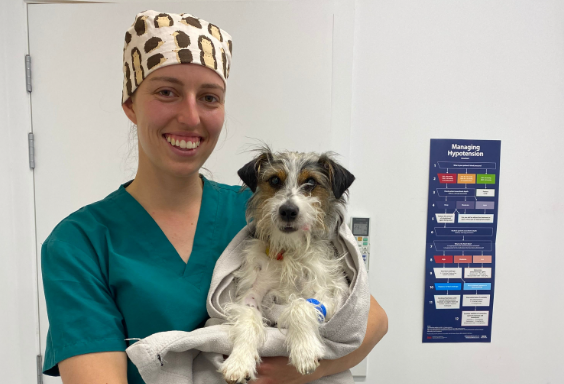Christmas is well behind us, and the days are getting shorter, which means Easter is just around the corner! While chocolate may not do wonders for our waistline, the consequences of chocolate for our furry friends can be far more serious.
Chocolate contains theobromine and caffeine, both of which are potentially toxic to cats and dogs.
The darker the chocolate the more theobromine and caffeine, and hence, the greater risk to your pet. The amount of milk chocolate that would have to be eaten to cause significant ill health is large, more than most dogs would get access to unless they ate whole boxes of chocolates.
Dark chocolate is much more concerning as the amount of theobromine in it is many times higher than milk chocolate. Note that white chocolate has extremely low levels of these compounds, which makes it almost impossible for a dog to be intoxicated by eating it, but it’s still a milky, calorie-rich food which can upset the stomach pretty badly, so diarrhoea is a possible outcome of eating all chocolate types.

Signs of chocolate toxicity due to the theobromine and caffeine can depend on how much is ingested and are due to excessive stimulation of the central nervous system, so increased thirst, restlessness, and a racing heart and common findings. In more severe cases muscle tremors, seizures and heart failure may develop, this can be fatal.
The caffeine will take effect very quickly, within 30 minutes, while the theobromine takes 2-3 hours to have any impact. If you think your dog has eaten chocolate more than 3 hours ago, and there have been no signs of ill health, it is extremely unlikely to develop toxicity. But diarrhoea might be coming…
If you suspect your pet has ingested chocolate, contact your vet clinic right away for advice. We may be able to induce vomiting so that the chocolate is not absorbed or provide supportive care while the toxins work through their system.
Our pets have a great sense of smell and can often find even the best-hidden chocolate treats, so make sure your chocolate is kept somewhere safe and secure out of their reach.
– Supplied by Steph Reid,
vet at Franklin Vets Kōpū




